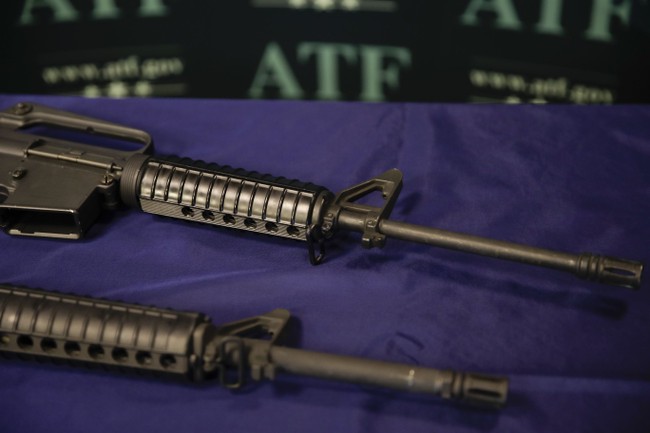The process of making a gun dates back to before the American Revolution. No one had to register a firearm with the government, no one had to get a special license, none of that.
Most people who make guns do so for their own use. Some might be working out the processes so they can become a licensed manufacturer, sure, but they’re still not selling the guns.
Those that are, however, aren’t dissuaded by any law on the books.
That didn’t stop Colorado from trying to ban so-called ghost guns.
Unfortunately, an attempt to challenge the case didn’t go particularly well, but now gun rights proponents are trying to revive the challenge.
A gun rights group asked the 10th Circuit on Wednesday to revive its challenge to Colorado’s ghost gun ban, prohibiting the making and owning of unserialized firearms.
“The district court should have held the manufacturing ban is unconstitutional on its face because that has roots dating back to before the revolution,” argued attorney Barry Arrington on behalf of the National Association for Gun Rights.
Facing a dramatic rise in the use of unmarked homemade firearms, dubbed ghost guns, being used to commit crimes, Colorado lawmakers sought to tamp down on the making of firearms from unmarked, unregulated parts.
The National Association for Gun Rights joined named Colorado residents who bought unserialized parts from Polymer 80 and sued the state on Jan. 15, 2024, challenging the law requiring registration of homemade guns and parts.
Biden-appointed U.S. District Judge Gordon Gallagher denied an injunction on May 2, 2024, finding the plaintiffs lacked standing and the matter wasn’t ripe for suit. The gun rights group appealed, asking that the law be analyzed under the legal tests set in New York State Rifle & Pistol Association Inc. v. Bruen which instructs courts to weigh modern gun restrictions against the historical record.
“In your view, the district court didn’t do a proper Bruen analysis, so you’d like the court to do a Bruen analysis that’s in line with your position,” asked U.S. Circuit Judge Joel Carson.
Arrington said he was confident the state’s law would collapse under Bruen.
And let’s keep in mind the scope of Colorado’s law. As Arrington noted in court, “The Colorado statute requires a single person making a single firearm to go out and get the same license as Smith & Wesson has to get.”
That is beyond ridiculous, and not remotely cost-effective.
However, let’s also recognize that criminals are making these guns all the time throughout the state. In short, the law doesn’t work as advertised and designed.
Yet even beyond that, as Arrington argues, the practice of making your own firearm predates the Constitution itself. It continued after the ratification of the Second Amendment and well into the 21st Century. By any history, text, and tradition standard, the law is unconstitutional on the face of things.
The state invoked Rahimi, saying that the Court said gun laws weren’t stuck in amber and that the law in question is about keeping guns out of the hands of dangerous people.
Yet Rahimi involves a far more limited set of people–those hit with restraining orders–whereas Colorado’s restriction outright bans the practice entirely.
I’m with NAGR on this one. The 10th Circuit blew it and blew it bad. This case needs to be revisited, ruled on correctly, and then everyone can call it a day.
Read the full article here


